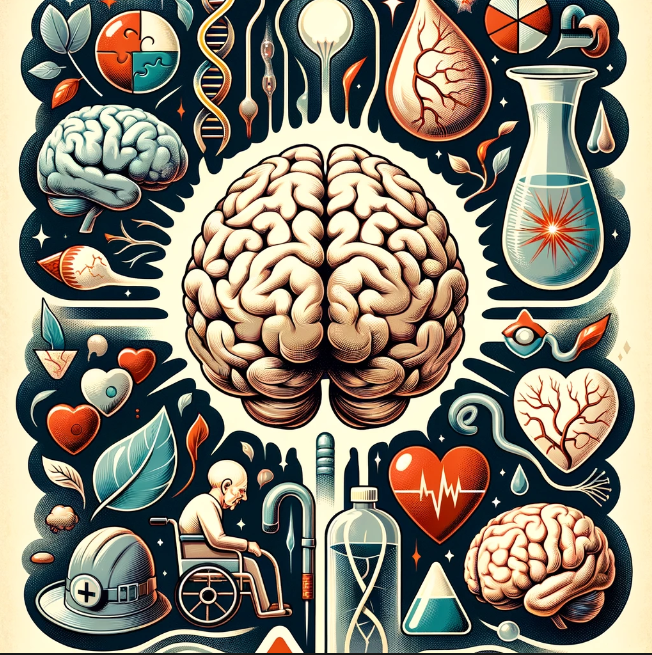The distinction between Alzheimer’s and dementia is often misunderstood, leading to misinformation among patients, families, and even some healthcare providers.
This confusion can impact the diagnosis, treatment, and care of individuals affected by these conditions. Understanding the differences and similarities between Alzheimer’s and dementia is crucial for providing appropriate care and support to those affected.
This article aims to clarify misconceptions, highlight the importance of accurate diagnosis, and explore the tailored approaches necessary for treatment and care.

Understanding The Terms | Dementia and Alzheimer’s
Clarifying the General Misunderstanding
The terms “dementia” and “Alzheimer’s” are frequently used interchangeably, yet they signify different realities. Dementia is not a single disease; it’s an umbrella term that encompasses a wide range of specific medical conditions, including:
- Alzheimer’s disease.
- Vascular dementia.
- Lewy body dementia.
- And frontotemporal dementia, among others.
Dementia as an Umbrella Term
Dementia describes a set of symptoms that adversely affect cognitive tasks such as memory, reasoning, and problem-solving abilities. Moreover, these symptoms are severe enough to interfere with daily life and independence.
Alzheimer’s as the Most Common Cause of Dementia
Alzheimer’s disease, on the other hand, is the most common cause of dementia, accounting for 60-80% of cases. It is a specific brain disease characterized by complex brain changes, including neuron damage and death.
Understanding the distinction is crucial not only for medical and care purposes but also for recognizing the individuality of the person’s experience and condition.
Recognize the Person, not the Disease.
Highlighting the importance of recognizing the person behind the disease is vital. Each individual’s journey with dementia or Alzheimer’s is unique, and their care and support need to be tailored accordingly.
Key Differences | Symptoms and Diagnosis
Symptom Differences Between Alzheimer’s Disease and Other Forms of Dementia
Alzheimer’s disease shares many symptoms with other forms of dementia, such as memory loss, impaired judgment, and cognitive decline. However, there are symptom differences and progression patterns that can help differentiate it from other types.
For example, Alzheimer’s typically begins with memory problems such as difficulty remembering recent conversations. Consequently, it progresses to affect other cognitive abilities.
In contrast, other forms of dementia might start with language problems or issues with movement. It may also affect personality and behavior at first.
The Diagnostic Processes for Alzheimer’s Compared to Other Dementia Types
For Alzheimer’s, the diagnosis involves detailed medical history, neurological exams, mental status tests, and brain imaging such as MRI and PET scans to rule out other causes of dementia and to look for characteristic patterns of brain atrophy associated with Alzheimer’s.
For other dementias, the process might focus more on the specific symptoms that are not typical of Alzheimer’s. These include movement disorders or changes in behavior and personality early in the disease process, and the speed of symptom progression.
Misconceptions and the Emotional Impact on Patients and Families
Misconceptions about these conditions can lead to significant emotional impact on patients and their families, often stemming from the fear and stigma associated with the word “dementia.”
This can also lead to misdiagnosis and inappropriate care strategies, significantly affecting the emotional wellbeing of patients and their loved ones.
Therefore, education and clear communication by healthcare providers are essential in mitigating these challenges.
Treatment and Care | Tailored to the Individual
Personalized Care and the Individual Behind the Condition
The approach to treatment and care for Alzheimer’s and other dementias must be highly personalized.
Current Treatment Options for Alzheimer’s
While there is no cure for Alzheimer’s, current treatments can temporarily slow the worsening of symptoms, and improve the quality of life for those with Alzheimer’s and their caregivers.
These treatments include medication for cognitive symptoms and interventions to manage behavioral changes.
In contrast, treatments for other forms of dementia may include medications to address specific symptoms unique to the type of dementia, such as medications for motor symptoms in Parkinson’s disease dementia.
Support Systems and Community Resources
The significance of support systems and community resources cannot be overstated. Caregiver support groups, respite care, and educational resources can provide much-needed assistance and information.
This includes resources designed to support both patients and caregivers through the journey of dementia.
Research and Future Treatment Options
Finally, advancements in research continue to offer hope for future treatment options. Ongoing clinical trials are exploring new treatments that target the disease process itself, aiming to slow or halt the progression of dementia, including Alzheimer’s disease.
The emphasis on early diagnosis and personalized care strategies underscores the importance of recognizing the nuances between Alzheimer’s disease and other forms of dementia.
Additional Information | Dementia-Related Conditions
Here are some of the most common diseases and conditions causing dementia:
- Alzheimer’s Disease: The most common cause of dementia, characterized by the formation of amyloid plaques and tau tangles in the brain.
- Vascular Dementia: Caused by damage to the vessels that supply blood to the brain, often after a stroke or series of mini strokes. This leads to problems with planning, judgment, and other thought processes.
- Lewy Body Dementia (LBD): Associated with abnormal protein deposits in the brain called Lewy bodies, affecting cognition, behavior, and movement.
- Frontotemporal Dementia (FTD): Encompasses several types of dementia involving the frontal and temporal lobes of the brain, affecting personality, behavior, and language.
- Parkinson’s Disease Dementia: Develops in the later stages of Parkinson’s disease, a disorder of the central nervous system that affects movement.
- Mixed Dementia: A condition in which changes representing more than one type of dementia occur simultaneously in the brain. Alzheimer’s and vascular dementia are the most common combination.
- Huntington’s Disease: A progressive brain disorder caused by a defective gene. This disease causes changes in the central area of the brain, which affect movement, mood, and cognitive abilities.
- Normal Pressure Hydrocephalus: Caused by the buildup of fluid in the brain. Symptoms include difficulty walking, memory loss, and inability to control urine.
- Wernicke-Korsakoff Syndrome: A chronic memory disorder caused by the severe deficiency of thiamine (vitamin B-1), most commonly caused by alcohol misuse.
- Posterior Cortical Atrophy (PCA): Characterized by the degeneration of the cortex (the outer layer of the brain) in the back part of the brain, affecting visual processing.
- Primary Progressive Aphasia (PPA): A form of cognitive impairment that involves a progressive loss of language function.
- Traumatic Brain Injury (TBI): Can lead to dementia-like symptoms, depending on the part of the brain that’s injured and the severity of the injury.
Conclusion | The Difference Between Alzheimer’s and Dementia?
Understanding the distinction between Alzheimer’s disease and dementia is essential for accurate diagnosis, effective treatment, and compassionate care.
Alzheimer’s is a cause of dementia, not a synonym for it. This helps demystify these conditions and highlights the necessity for a tailored approach to each individual’s care.
While Alzheimer’s is the most common cause of dementia, recognizing the broad spectrum of dementia and its various causes is crucial.
Tailoring treatment and care to the individual, acknowledging the person behind the condition, and leveraging support systems and advancements in research are key to managing these complex conditions.
As we continue to strive for a world without Alzheimer’s and other dementias, our focus must remain on the individuals and families affected, providing them with the hope, support, and care they need.
As research progresses and awareness grows, there is hope for more effective treatments and, ultimately, a cure. Until then, recognizing the person behind the diagnosis remains at the heart of compassionate care, emphasizing the need for empathy, understanding, and personalized support in navigating the complexities of dementia.
Has this article, “Is There a Difference Between Alzheimer’s and Dementia?” clarified any misconceptions you may have had?
Please feel free to share your thoughts, questions, or comments below. I’d love to hear from you and will be happy to respond.
Veron | Entrepreneur | The Way 4WordEnterprises
Personal Recommended Resources:
Another Daughter TM | A senior care service for independent Seniors living in or around Raleigh, NC
